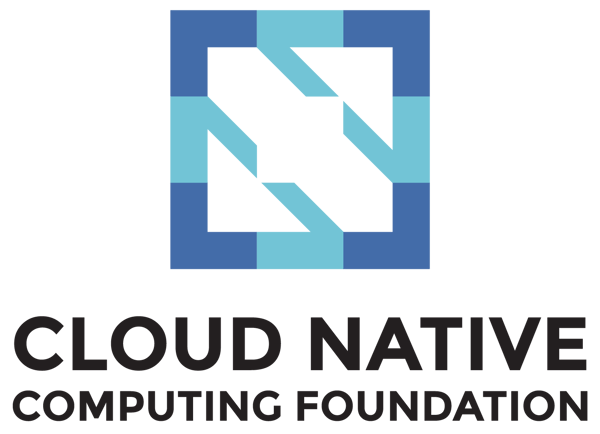Migrate and release applications quickly and efficiently with AWS Elastic Kubernetes Service
Kubernetes empowers organizations to build and run scalable applications in modern, dynamic environments such as public, private, and hybrid clouds However, reaping the full benefits of Kubernetes isn’t as straightforward as simply moving your applications to a cloud provider.
Your apps should be built in a way that they take advantage of scalability, resilience, and high availability provided by Amazon Web Services. When you master CI/CD with cloud native app development, your apps are secure, consuming resources optimally, and you deploy new software instantly.
Eficode manages your Kubernetes on AWS
At Eficode we are experts in DevOps and Continuous Integration / Continuous Delivery. With our Managed Kubernetes service, you are free from heavy lifting that does not provide value for your customers.
Our deep knowledge of AWS technologies combined with cloud-native skills helps you deliver customer values faster while optimizing costs. We assess your existing situation, make recommendations regarding technologies, and bring you to AWS EKS with the competencies you need to succeed.
Learn how to combine DevOps and cloud to achieve speed, quality, and cost-effectiveness
“When we bring in consultants at TV 2, we want them to be part of the team. That worked well with the Eficode consultants. They are also good at proactively communicating and keeping us in the loop. Plus they also communicate and align internally, avoiding double-work and inefficiency,”
Martin Villumsen
Staff Engineer at TV 2 Denmark

We offer you Kubernetes as a service
As a Kubernetes Certified Service Provider and an AWS Advanced Consulting Partner, Eficode offers Kubernetes consulting, support, and training for organizations embarking on their Kubernetes journey on AWS. We also constantly contribute to the open-source community.


Get started with AWS EKS
Create a roadmap and strategy, define best practices for service architecture, and design and implement your solution.
Adopt new cloud native approaches, enable cloud-oriented culture in your organisation, and optimise your toolchain.

Fully managed Kubernetes
Get a more secure cloud solution with automatically applied security patches, optimise your costs, and automate and maintain your environment.

Kubernetes Training
Introduce new tools to your teams and grow your in-house experts. See courses

CI/CD solution for Kubernetes
Whether you use AWS Code Pipeline, or Eficode ROOT managed DevOps platform, you deploy any code from any pipeline to Kubernetes with breeze.
Adopt GitOps, and Sync Kubernetes with Git repository, for automated and self-correcting deployments.

Seamless integration with AWS infrastructure
Secure and straightforward integrations with other AWS resources, such as networking, logging, and built-in security solutions.
Choose your Kubernetes advisor
Eficode is a member of the Cloud Native Computing Foundation, helping to shape the future of the Cloud Native ecosystem. Kubernetes is one of the largest ever open source projects with a very wide community. We are proud to be a part of it. Read more.

Trusted advisor
We work with the largest and greatest companies using Kubernetes all over Europe and United States. We have over 60 certified AWS professionals.
Compliant service provider
We are ISO 27001 certified and ISAE3402 Type II audited. Our customer support offers around-the-clock support for your apps.
Cultivate the right skills and practices
Our consultants work alongside your employees. We teach them everything we know through daily work routines to permanently embed new skills and engender good habits in your team.
Talk to us about Kubernetes on AWS
Frequently asked questions about Kubernetes on AWS
With Kubernetes, you can automate operational tasks in container management. It also makes monitoring distributed applications easier.
Kubernetes is the second largest open-source project in terms of activity (after Linux), and is the defacto container runtime for cloud and on-premise workloads.
Amazon Elastic Kubernetes Service (Amazon EKS) is a container management service that makes it easy to run Kubernetes on AWS.
When you use AWS, EKS offers a console for your Kubernetes clusters, and it becomes a single plane for you to manage your Kubernetes applications, running on AWS.
AKS (Azure Kubernetes Service) and EKS (Amazon Elastic Kubernetes Service) are both solutions to manage your containerized applications.
If you are already running your services in Azure, you may also consider AKS.
Kubernetes clusters can be self-managed, managed by a cloud provider, or by Eficode.
If you choose to self-manage your clusters, you should prepare to havea highly specialized competence within your team and budget for ongoing infrastructure and maintenance costs.
If you choose Kubernetes as a Managed service, you can choose one of the services, including Amazon EKS.
Eficode also offers fully managed Kubernetes service, that allows you to focus on deliver value to to your customers while Eficode manages your applications running on Kubernetes.
With Amazon EKS, you don't have to maintain Kubernetes, because the service does it for you. You request an update to a new version, and the update itself is managed by AWS.
We recommend using an infrastructure-as-code approach where you define the cluster configuration as code and maintain these configurations in a version control system.
In most cases you will have to manage more than one cluster, for example, development and production clusters. It is important that your clusters have the same configurations, and that the nodes have the same access/auth scopes to other cloud services.
On Amazon EKS, the update process consists of launching new API server nodes with the updated Kubernetes version to replace the existing ones. Amazon EKS performs standard infrastructure and readiness health checks for network traffic on these new nodes to verify that they're working as expected. This is part of the service with Amazon EKS performs for you.
Once your cluster passes all verification and health check, you can use eksctl command to perform an update.
Ideally, a company has set up a CI/CD pipeline for application building, testing, and deployment.
Combined with an infrastructure-as-code approach, both your application and infrastructure is maintained in a version control system.
With this approach, as you make changes to your code, your application is built into a container, it is tested, and consequently, if the container-based tests pass, the application is deployed to Kubernetes.
Before anything else, you need to verify the VPC and subnet requirements so that they meet Amazon EKS requirements.
After that, verify that you have kubectl and AWS CLI installed on your AWS CloudShell.
You will need an IAM user or role with permissions to create and describe an Amazon EKS cluster.
Finally, you can create a cluster by using eksctl, the AWS Management Console, or the AWS CLI.
We recommend using an infrastructure-as-code approach where you define the cluster configuration as code and maintain these configurations in a version control system.
Amazon EKS is priced per hour per cluster. You only pay for what you use, as you use it.
You will pay a monthly fee per cluster. You also pay for the EC2 compute nodes you assign to your cluster to run your workloads.
There are no upfront commitments.
Stay up to date - get the newsletter
Exclusive educational content and news from the Eficode world. Right in your inbox.






